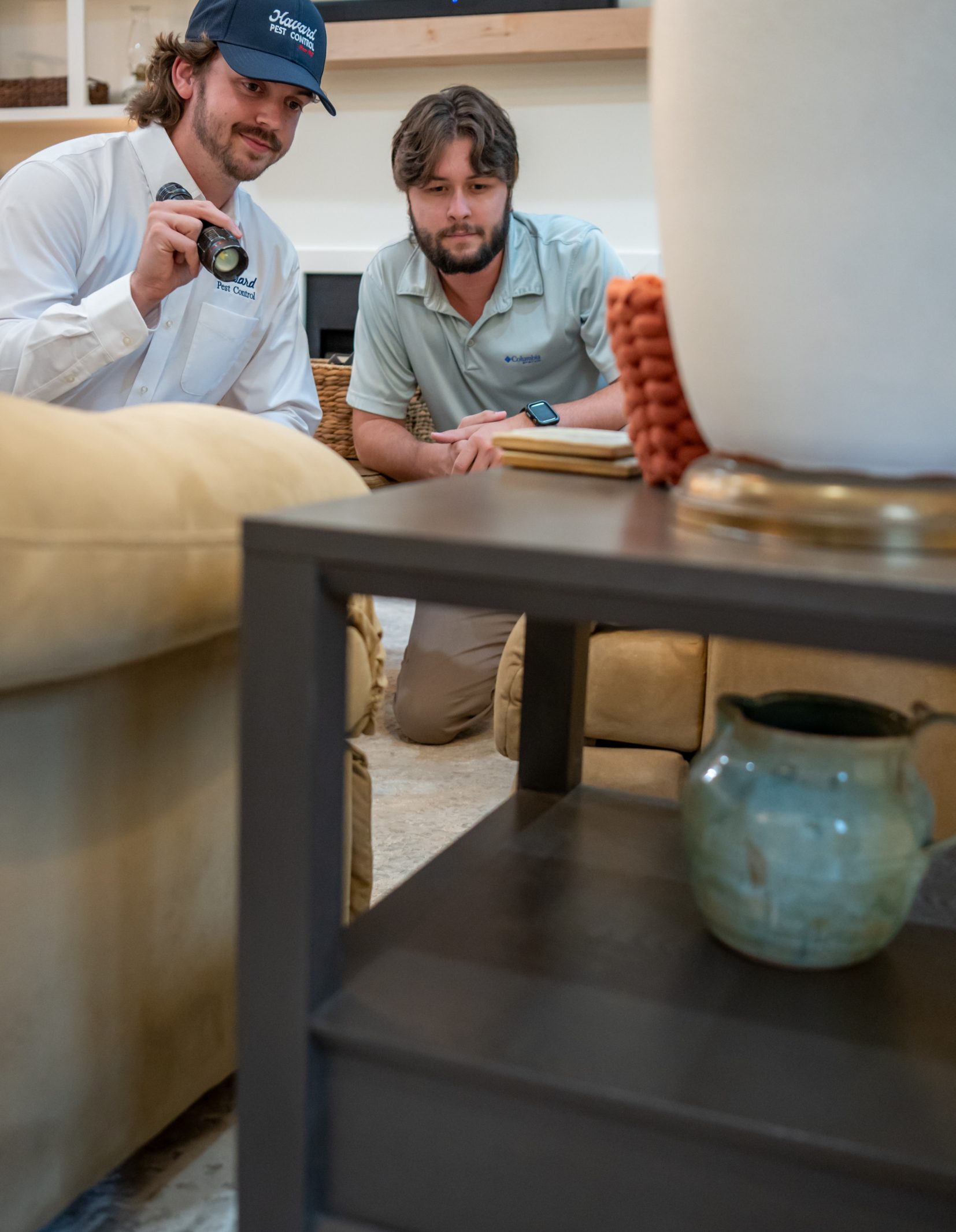TERMITES CAN DESTROY YOUR PROPERTY BEFORE YOU EVEN NOTICE
Protect your property from destructive termites with our comprehensive termite control services, utilizing advanced baiting and liquid treatment methods for effective elimination.
THE HAVARD EXPERIENCE
Our Proven Process
01 ASSESS
Our expert technicians conduct a detailed inspection to identify termite entry points, nesting areas, and signs of infestation, ensuring a precise and targeted treatment plan.
02 DIAGNOSE
We analyze termite species and activity to determine contributing factors, allowing us to apply the most effective termite control strategy for your home or business.
03 PLAN
Based on the inspection, we develop a customized termite protection plan using eco-friendly, EPA-approved treatments like baiting systems and liquid barriers for maximum effectiveness.
04 TREAT
Our team applies precision treatments to key areas, including entry points, foundation perimeters, and high-risk zones, ensuring termites are eliminated at the source with minimal disruption.
05 MONITOR
We provide ongoing termite monitoring and follow-up inspections to track treatment success and make necessary adjustments to prevent reinfestation.
06 PREVENT
Our specialists offer proactive prevention tips, including sealing entry points, reducing moisture buildup, and maintaining a protective barrier, ensuring long-term termite protection and a pest-free home.
TERMITE CONTROL METHODS
Bait Treatments
We utilize the Sentricon® System, an environmentally friendly baiting method that targets the termite colony at its source, effectively eliminating the queen and her colony.
Liquid Treatments
Our liquid treatments, such as Termidor®, are applied around your home’s foundation to create a protective barrier, preventing termites from entering and causing damage.

HAVARD’S TERMITE CONTROL & SAFETY MEASURES
Safe for You and Your Family, Tough on Termites
At Havard Pest Control, we prioritize the safety of your family and pets by using eco-friendly, EPA-approved products that are effective against termites while minimizing environmental impact.
CUSTOMIZED SERVICE PLANS
PET & FAMILY FRIENDLY
ENVIRONMENTALLY SAFE
SIGNS OF TERMITE DAMAGE
Termite Damage Starts Small—Catch It Before It’s Too Late!
If you notice any of these signs, it’s essential to consult a pest control professional for an inspection and treatment options.
MUD TUBES
Pencil-sized tubes made of soil and wood particles are often found on walls or foundations, serving as tunnels for termites.
WOOD DAMAGE
Check for hollow-sounding wood or wood that crumbles easily. Termites eat along the grain, leaving behind a thin veneer.
SWARMERS
FRASS
This is the sawdust-like material that termites leave behind after eating wood. It can often be found near damaged wood.
BUCKLING WOOD
Water damage might mimic termite damage, but blisters or buckled wood can indicate a termite presence beneath the surface.
ASK THE HAVARD EXPERTS
Frequently Asked Questions
How can I tell the difference between a subterranean termite infestation and a Formosan one?
How do I know if I have a termite problem?
How much does termite control cost?
How do I renew my termite warranty and how much does it cost?
See all FAQ

GET A FREE INSPECTION
Say Goodbye To Pests For Good
Since 1947, Havard Pest Control has been protecting homes and businesses from unwanted pests. With decades of experience, we don’t just eliminate pests—we keep them from coming back. Trust our expert team to provide safe, effective, and long-lasting solutions for your peace of mind.







